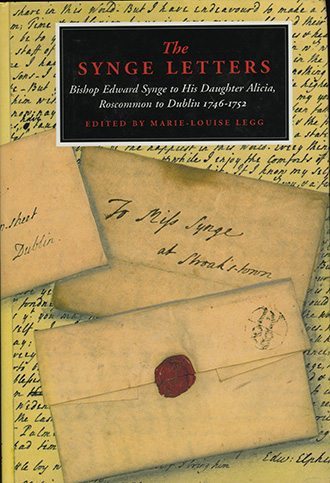
The Synge Letters
Bishop Edward Synge to His Daughter Alicia, Roscommon to Dublin 1746-1752
By: Edward Synge
Edited by:
Publication Date: June 1997
€100.00
The Synge Letters: Bishop Edward Synge to His Daughter Alicia, Roscommon to Dublin 1746-1752 by Bishop Edward Synge, edited by Marie-Louise Legg
Edward Synge wrote 221 letters to Alicia, his daughter, betweeen May and October of 1746 to 1752. He was an adoring though not uncritical father, advising, gossiping and instructing her from his country estate. Synge was a wealthy man and Alicia a considerable heiress; his concern about her need to marry well and her motherless condition is a running, if tacit, theme of the letters.While writing of his life in the diocese, he counsels Alicia on her conduct and mode of life in Dublin; deals with manners and reading matter; with food (how to make good bread) and drink; discusses the false modesty of women and menstruation. He advises her about how to talk to doctors and on matters of taste, house-building and decoration; instructs her on methods of dealing with Dublin tradesmen, the upkeep of his garden and the correct way to plant a border. Throughout this correspondence he describes his Roscommon neighbours and life in the Irish provinces in fascinating detail.
These vivid, wide-ranging and sympathetic letters from father to daughter open a window onto social and domestic life in the mid-eighteenth century, revealing lost worlds with the illumination of a Vermeer or a Montaillou. Immediate and richly detailed they constitute a major new source for the history of eighteenth-century Ireland and – in a great age of letter-writing – form an exciting contribution to that most intimate of genres. The letters are fully annotated and accompanied by a biographical register, maps, index, bibliography, and appendix on Synge property and wealth. They will delight the scholar and general reader alike.
‘Here, suddenly I felt, was the most extraordinarily revealing and sympathetic historic document that I had encountered in 25 years of research …. I reached the end of the correspondence with the feeling that I had entered and understood a culture in the same way as if I had read one of the best epistolatory novels on the 18th century … thanks to the high and calculated literary skills of Edward Synge, by turns severe and admonitory, relaxing and teasing, modulating his style to the occasion and to the growing maturity of his young daughter.’ – Toby Barnard
‘A major publishing event. The Synge Letters are an unprecedented new source of information for mid-18th-century social history.I should like to quote the whole of this wonderful book.’ – Victoria Glendinning, The Spectator
‘Shows a father-daughter relationship more vividly than any number of monographs on affective relationship in the eighteenth century and casts a new light on the subject, the power of the whole series … is very moving, and always absorbing. One is forcibly struck by the vivid, wide-ranging and sympathetic tone of the writer and – yet more – by the importance of the correspondence’s implication for many areas dealing with eighteenth century mentality and attitudes, not only in Ireland … as one reads on (and I find them hypnotically readable) a whole world comes into focus, domestic at first but stretching its boundaries wider and wider … anyone with historical imagination would be captivated by the correspondence.’ – Roy Foster
‘Compelling and valuable.An exceptional insight into the quotidian; a fascinating perspective on the Anglo-Irish élite at its zenith; and a wonderful opportunity to expore an evolving human relationship in a superbly presented and lovingly edited testament of the pleasure of history.’ – James Kelly, The Irish Times
‘This is a truly wonderful book. It provides a more vivid and memorable insight into life in Ireland in the middle of the 18th century than any other document I know in manscript or in published form.[it] is nothing less than a minor masterpiece. Buy it, read it and enjoy it.’
– Andrew Carpenter, Irish Independent
‘Fascinating insights into everyday life of an eighteenth century bourgeois.’ – Customer review
ABOUT THE AUTHOR
BISHOP SYNGE was a member of a formidable clerical dynasty dominating social and ecclesiastical life in Ireland for several generations. Born in Cork in 1691 of a family that included an archbishop and four bishops, Synge was Chancellor of St Patrick’s Cathedral from 1726-30, Bishop of Clonfert and then Cloyne 1731, Ferns in 1733, and Elphin in 1740. During the summer he lived at Elphin, Co. Roscommon, and during the parliamentary winter term at his large house in Kevin Street, Dublin. He had six children by Jane Curtis, of whom only one, Alicia, survived, before he was widowed. A busy public figure in Dublin, he was Commissioner of the Tillage Act, Governor of the Workhouse, of Dr Steevens’ Hospital and of the Blue Coat Hospital, and Treasurer of Erasmus Smith’s Schools. He attended the first performance of Handel’s Messiah and corresponded with the composer. He died in 1762, and is buried in St Patrick’s Cathedral. These letters to his daughter form his most enduring legacy.
ABOUT THE EDITOR
MARIE-LOUISE LEGG is an Honorary Teaching Fellow at Birbeck College, London. She co-edited Pandaemonium (1985) by her father, the film maker and poet Humphrey Jennings, and is descended from Bishop Edward Synge, whose letters to his daughter Alicia are now in Trinity College, Dublin.
Out of stock
| ISBN | 9781874675495 |
|---|
| Weight | 1 kg |
|---|---|
| Dimensions | 155 × 240 mm |
| Publication Date | June 1997 |
| Format | Hardback, 520pp |

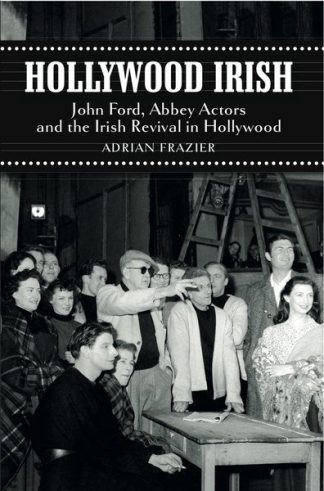
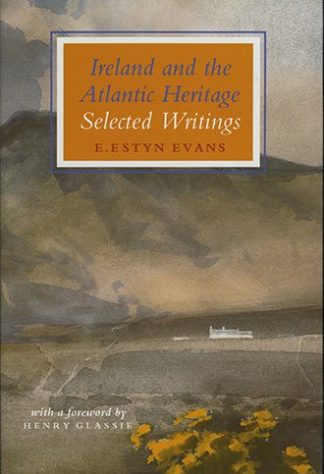
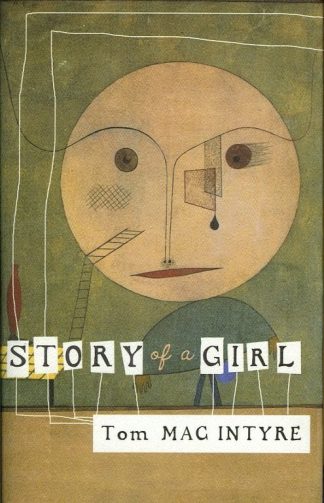
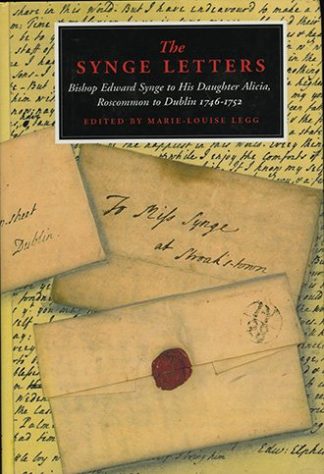
Reviews
There are no reviews yet.